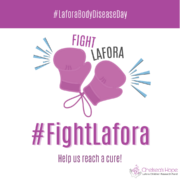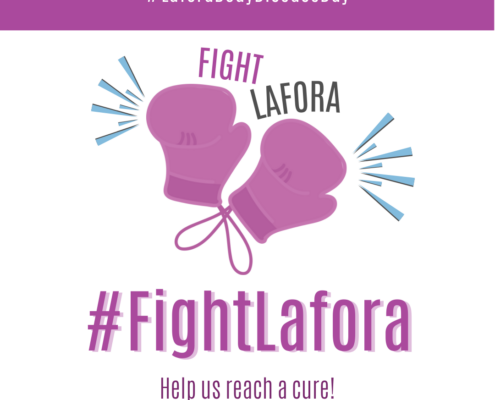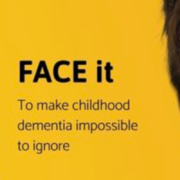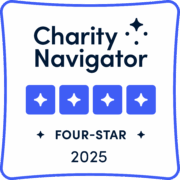Lafora Body Disease Day 2024
This year’s Lafora Body Disease Day holds special significance. Not only are we in the middle of our first Awareness Campaign, but today would have been Chelsea’s 34th birthday – our namesake and the inspiration for Chelsea’s Hope Lafora Children Research Fund. She, along with all the children we have lost to Lafora disease, is the reason we continue the fight. Keep reading for a message from our founder!
Share How You #FightLafora
We seek to honor all our Lafora warriors and heroes as we continue along the therapeutic journey.
Help us reach a cure by joining in! Here’s how you can raise awareness and fund the ION283 Safety Study for Lafora disease:
- Share your story in your local news or social media and use #FightLafora, #LaforaBodyDiseaseDay, #LaforaAwareness24. Here is a toolkit to help you. You can also invite others to join our movement!
- Donate or start a fundraiser for the ION283 Safety Study. Thank you to everyone who is already participating.
Creating awareness helps identify more patients, find partners, and expand our community dedicated to reaching treatments for Lafora disease. So many people don’t know Lafora disease exists. Together, we can change that!
Download and share a graphic:
Let’s honor those we’ve lost and continue to fight for our children facing Lafora disease today. Thank you for your support in raising awareness and funding the Safety Study.
A Note from Linda
As many know, I am the founder of Chelsea’s Hope Lafora Children Research Fund, but my most important role and privilege was being Chelsea’s mom. 
October 1st, also deemed Lafora Awareness Day, is Chelsea’s birthday; she would have been 34 years old.
She left this world much too soon, in December 2016, at the age of 26.
I began Chelsea’s Hope 15 years ago as a means to connect Lafora families for support, raise awareness, and fund research for a cure. We have succeeded on these points, and I am so proud to share that this past week, the FDA approved the first-ever patient safety study. This is HUGE news!
Please join me in helping fund this historic and life-changing moment in Chelsea’s Hope history. The families of Chelsea’s Hope are desperate to save their children’s lives.
So many of you have donated to our research pleas over the years, and we are forever grateful! Your generosity has made a huge difference to our success. We have now reached this pivotal juncture of clinical trials and are on the cusp of treatment that could positively change the course of life for Lafora patients.
Please donate, join our team, and/or share our campaign to make history by eradicating Lafora disease and saving the lives of our children!
With gratitude and always maintaining HOPE,
Linda
You can still join the Awareness Campaign as a fundraiser (here’s a video to get you started!) or give to support the Safety Study. Chelsea’s Hope also prepared a toolkit to help and will update our Awareness folder with more graphics you can share.











